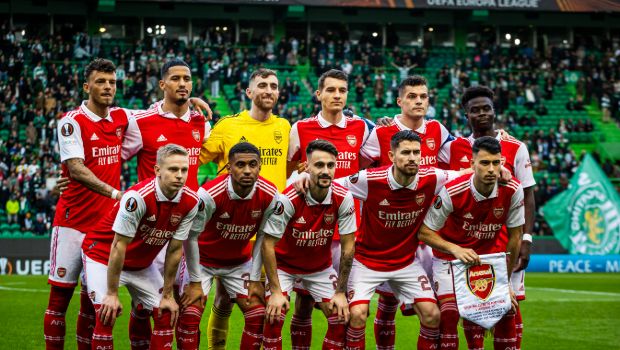Arsenal’s pursuit of Benjamin Sesko is more than just another high-profile transfer chase — it’s a break from a long-standing tradition. For years, the Gunners have carefully avoided dipping into the Bundesliga for fresh talent, and when they have, it’s usually been for seasoned names. Sesko doesn’t fit that mold — and that’s exactly what makes this move so significant.
The Gunners haven’t brought in a senior player directly from the German top flight since 2018. When they did, it was Bernd Leno and Sokratis — both experienced, established professionals. Before that, their major Bundesliga investment was Pierre-Emerick Aubameyang, a striker who had already hit the heights in Europe. Aubameyang arrived with a résumé stacked with goals and a reputation built in Champions League nights.
Sesko, on the other hand, is still on the ascent. At 22, he’s rawer than any of Arsenal’s previous Bundesliga imports. He’s scored consistently for RB Leipzig, but he hasn’t dominated Europe or consistently featured in deep tournament runs. Signing him now means betting on what he could become — not what he already is.
This is an unusual route for Arsenal under Mikel Arteta. The club’s recent transfer history has favored Premier League-proven players or those already hardened by European competition. Think Declan Rice, Ben White, or even Gabriel Jesus — all players who knew the demands of English football before pulling on the red shirt.
Sesko doesn’t come with that familiarity. And while that opens the door for Arsenal to mold him into the player they need, it also invites uncertainty. The pace, physicality, and intensity of the Premier League has derailed many a Bundesliga forward before. Timo Werner and Christopher Nkunku can attest to that, both struggling with the step up after promising spells in Leipzig.
So why is Arsenal changing course now?
The answer lies in what they don’t have. Last season, a lack of firepower at key moments cost them silverware. While Kai Havertz eventually found his stride as a makeshift striker, it was always a compromise. Arsenal needs a forward who lives in the penalty box, not one who’s learning the ropes up front.
Sesko fits the mold of a classic No.9. He’s strong, good in the air, and carries a striker’s instinct — but he’s still refining his game. And in that, Arteta sees an opportunity. Unlike past signings from Germany, which came fully formed, Sesko offers a blank canvas. He can be shaped within Arsenal’s system, trained to execute the team’s pressing patterns and grow into the role without the baggage of expectations that came with players like Aubameyang.
This shift also signals a more aggressive stance from the Gunners in the transfer market. Seven years of Bundesliga hesitation appears to be ending — and with it, the club is willing to take bigger risks in pursuit of long-term rewards.


























